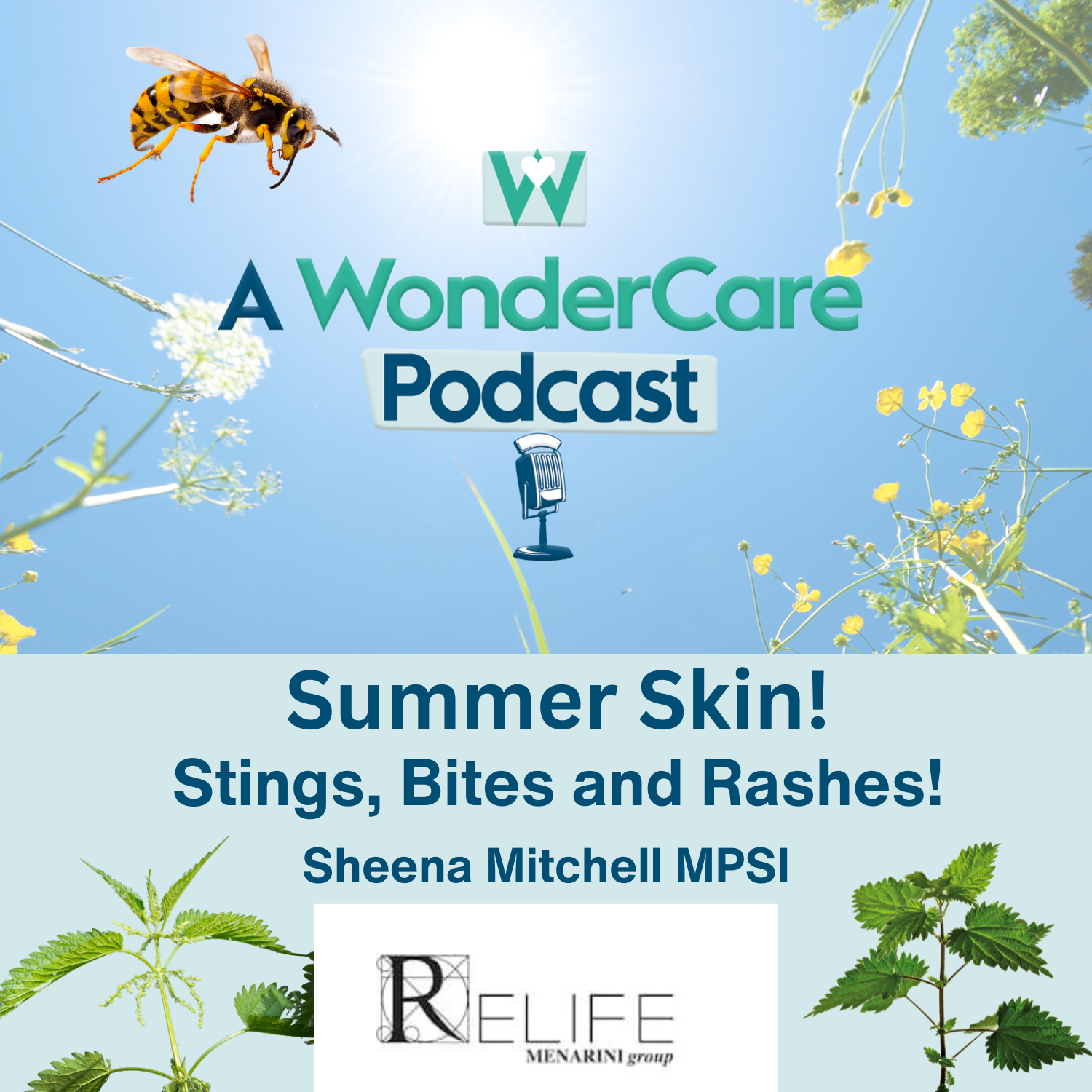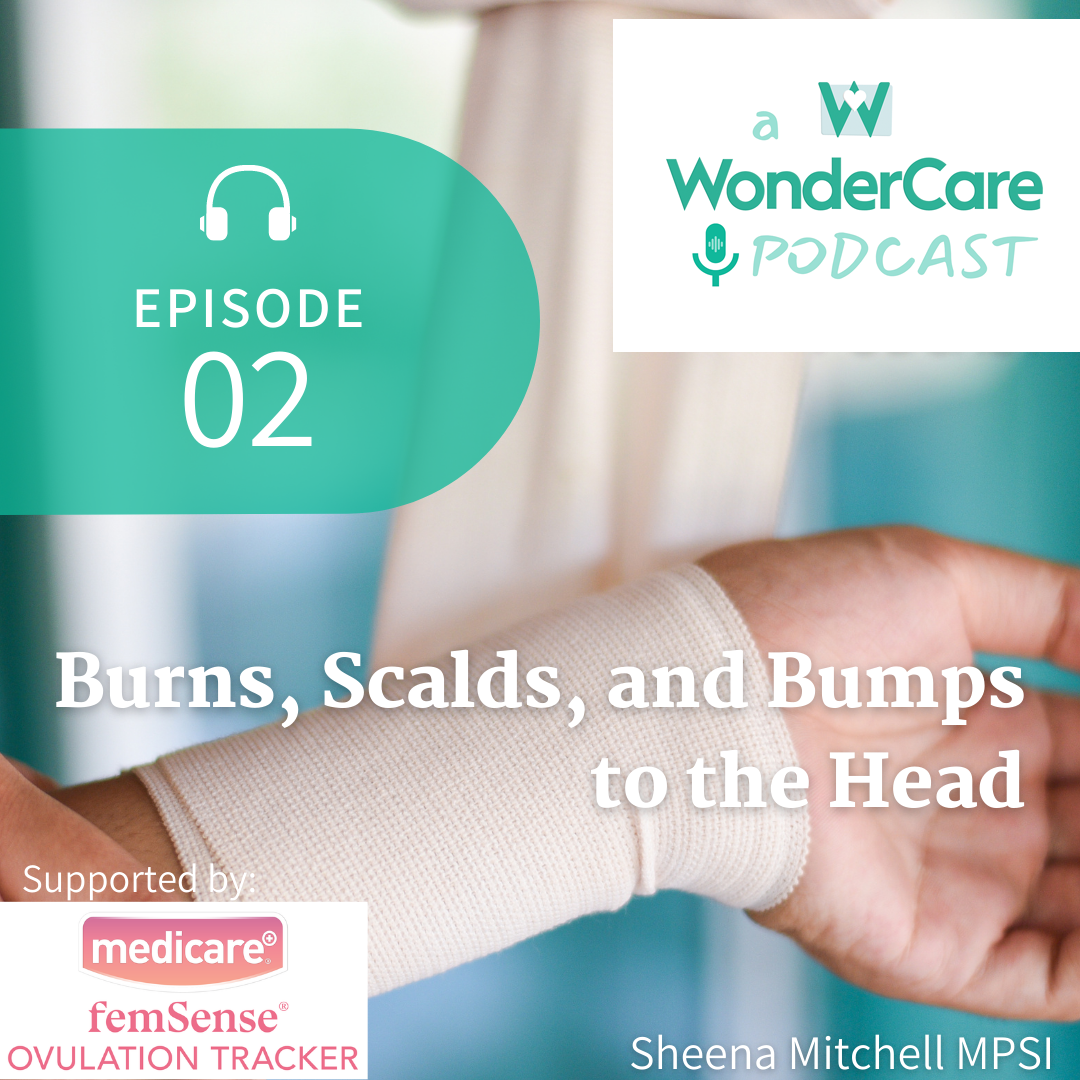Episode Transcript
[00:00:00] Speaker A: You.
Hello and welcome to a Wonder Care podcast. My name is Sheena Mitchell and I am a pharmacist, mum of three, and here to guide you through all of your family health care needs. I just wanted to give you a quick update on the measles cases in Ireland. So on the 12 March, we were notified of the third case. This. This case was confirmed by the HSE and it was detected on board Etihad Airways flight EY 45, which arrived in Dublin at 630 last Saturday. The HSE are requesting pregnant women as well as those who are immunocompromised or had young infants with them under the age of twelve months to make immediate contact with the HSE or Department of Health. I think it's sound advice to say that anyone on that flight who is unvaccinated may want to stay away from vulnerable family members, etc. But that is not an official statement from the HSC. That's just what I would personally do if I had been on that flight and I was unvaccinated. Airplanes are obviously a high risk for the spread of infection. Now, I know there was a lot of debate about that during COVID because of the way they clean the air, et cetera. But look, we know that measles is highly, highly contagious. So the chances are if there were unvaccinated people on the plane, they probably will have been exposed to measles.
[00:01:28] Speaker B: I'm just going to pause for a second to give a big shout out to my supporters. Salon Plus. Salon plus is the world's 1st 100% natural dry salt therapy device. It's clinically proven to relieve a wide range of allergens and respiratory conditions. The salt therapy method has been trusted for generations and is now hugely popular worldwide. More and more people are recognizing the superb results achieved from a natural and noninvasive method. This device helps you to breathe easier and sleep better.
[00:02:01] Speaker A: So with that in mind, I just wanted to bring you up to date and give you a really, really quick reminder of what you need to know. So, first of all, we know that in January we had our first confirmed case. And that was a really, really sad, sad case where a man from Westmead died on the 6 March. So last week in the west of the country, there was a second confirmed case and that was in a teenager on the twelveth of March. We've had this third case which came in on the flight from Abu Dhabi. Over the last number of weeks, there has been a lot of suspected cases. And just to clarify that a suspected case is one which presents with all of the symptoms of measles. And really, to a doctor, looks like it is measles that will then be lab tested and it will either be denotified or it'll be confirmed as a case. So we've had many suspected cases, but to date, only three confirmed cases. One fear I suppose I have is that with an infection that is this contagious, obviously the potential for exponential growth is significant. That is because with measles, you're actually contagious for four days before the rash appears and for four days after. So you might have symptoms like a bit of a cold or fever or cough two to five days before the rash appears. But it can be hard to suspect measles in every case. Once the rash starts, it will give a blotchy red brown rash around the ears, kind of the top of the head, usually around the hairline, and then it kind of spreads downwards in direction so that it's all over the body. Often people will get eye infections, so conjunctivitis, and they'll have sensitivity to light as well. The problem with measles is the incubation period, so you can develop symptoms up to 21 days after being exposed. The HSE have issued advice that anyone on that plane remains vigilant for symptoms of measles. There's a lot of debate about this at the moment where some people think you should be isolated for those three weeks. And obviously there's a lot of people who do not want to see anything like that happen, because it just rings reminder alarm bells of the pandemic that we've just gotten through. I think at the moment, the number of cases that are confirmed are still quite low. So I want to reassure people that at the moment, I don't think we're at a point where we need to isolate absolutely everyone. But I do think everyone really needs to be aware of the symptoms and they need to act really promptly if they have any sign of a cold or fever or cough and they know that they've been in contact with a confirmed case. The other thing then, that obviously is the most important thing here, is the MMR vaccination. I've done previous episodes on this, so I'm just going to fly through it quickly. But we need our vaccination rate to be over 95% to stop measles being opportunistic and spreading amongst our communities. At the moment, on average, Ireland is only hitting 87%. We know the complications of measles are really serious. 6% of people will get pneumonia, 79% otitis media, which is ear infections, can get 8% will have diarrhea 25%. That's one in four cases of measles will need hospitalization. One to three per thousand people will die. One in 1000 people will develop encephalitis, and one in 100,000 will develop a rare and fatal central nervous system disease called SSPE, which can actually arrive up to seven years after infection on average. So that's all quite scary. MMR, really, really effective vaccine it's over 90% effective after one dose, and you can have your second dose anytime after 28 days of the first dose, and the second vaccine makes it over 95% effective. Now, we know that children receive their first vaccine at their twelve month vaccinations, and then they receive the second dose in junior infants. Some people are anxious and want to get it early that isn't currently recommended. So remember, after dose one, you have over 90% efficacy, which is really, really good for a vaccine. The one thing I'd say is if you're traveling to european countries this year, we know that there is outbreaks of measles occurring, and even actually the UK, our closest neighbor, they have had since October. Until now, they've had 733 confirmed cases. So that's quite high. It's quite rampant in areas like London, et cetera. So if you're traveling to those areas, it might be worth considering discussing with your GP. Getting your child vaccinated early. For that reason, the vaccination campaign is open to anyone born from 1970 I eight on, I've done an episode explaining that it's really messy and a lot of people are unhappy because they really feel certain that they didn't have measles as a child, as is assumed by the HSE who were born pre 1978. But look, I cover that in an episode about the MMR and also on my Instagram page at Wondercare. Underscore IRL side effects of the MMR are really much like any other vaccine, so you might get a little bit of tenderness or redness around the site of the injection. You might get a mild fever. Your child may even get a rash. So about one in 20 will develop a rash. This can be known as mini measles and it is not contagious, and you only really get a small rash. It's nothing to be concerned about. One in 100 will get swelling under the jaw, and this is probably due to the mumps element of the MMR. And again, it's not dangerous and it's not contagious. One in 10 million will get encephalitis, which obviously is a really, really serious swelling of the brain which can do permanent damage. However, that statistic, one in 10 million will get it from getting the MMR vaccine. One in 1000 will get it if you contract wild measles. So if you get measles out and about, you are so much more likely to suffer from encephalitis than you are from the vaccine. We have to consider risk and benefit. And really, there is no argument here against the MMR. It is a really safe vaccine. Remember, measles is airborne for 2 hours after a person has been in a room, and if they've had measles, that does also increase the potential to spread. Just important because you can imagine even walking around a supermarket, anyone who walks in for the next 2 hours who's unvaccinated would be potentially vulnerable. Okay, I just wanted to give you those little updates and as I said, have a look back through my last few episodes. There was ones on measles and the MMR there. And also I have saved a measles highlight on my Instagram which is at Wondercare underscore IRL and there is a load of information there. All about vaccines, all about eligibility for vaccination, all about the catch up program, which by the way, I strongly feel is ridiculous because they're not including community pharmacists in that when really we are so accessible and we are just finished our flu vaccine and we really should be vaccinating with the MMR. I don't know why the decision has been made to make it inaccessible and to put further burden on our gps who already cannot see every patient that needs to be seen. So I am furious about that. But that is not the argument for today. But anyway, all of those infographics and information are in my measles highlight and there's been loads of Q and A's answered there. So hopefully any questions you have, you will get the answers too. Thank you so much for listening. And don't panic. It's just important to be aware of these things, not to be terrified by them. So all we need to do is remain vigilant and ensure that our measles vaccination so the MMR is up to date, particularly in children. If you missed doses, do go and get a catch up dose. And again, all the information about that is in my highlights. Thank you so much for listening and I will talk to you later in the week because this is an extra little information episode. I will be back on Friday talking about low body temperature in babies and how low body temperature can be just as dangerous as a high fever. And it can also be a sign of infection. So I'll chat about that more on Friday. Thanks so much for listening. Bye.


